Poms in the Park
To Twickenham for the Rugby World Cup. To Wembley for England’s (soccer) football world cup qualifier against Estonia. To Lords for a tour of the home of cricket. All three of them ball games invented by the British at which they are now outclassed by the rest of the world. Despite Australia’s eventual loss to New Zealand in the rugby final, Australia’s removal of competition host England in only the pool stages before the serious contest started, was adequate reward for my first ever, at 85, visit to Twickenham, the home of rugby. My son Andrew, who arranged it, had noted that even before England’s embarrassing exit, there had been very few indications in London that such a thing as a World Cup was in progress. There were none of the banners or flags or bus promotions that lesser host cities feel the need to display. Apart from the occasional notice-board outside pubs announcing ‘full uninterrupted free TV cover of all world cup games’, the only real indication of momentous activity at Twickenham was in the many groups of colourful football-jerseyed fans enjoying London’s sights – and pubs. But soon there were very few to be seen wearing the white and red of England’s St George.
Until England’s elimination, rugby, normally found in the sports pages, had enjoyed temporary occupation of the front news sections of London newspapers. With England failing to survive the pool stages, there were dire warnings of the consequences of this humiliation: retail sales would falter, TV advertising revenue would suffer and a sense of gloom would depress markets. Rugby was relegated to where it belonged in the back pages. But by most measures, except for the failure of any of the northern hemisphere’s traditional rugby nations to make it to the semi-finals, the rugby world cup was a success, with rugby headquarters Twickenham’s 80,000-odd seats fully occupied for most of its games.
After watching some of the other lesser lights in their pool games at the re-vamped Olympic Stadium it was back to Twickers to applaud the defeat of Wales. After a lucky win over Scotland and a decisive one against Argentina, our loss to the mighty All Blacks may have been due to the absence of rugby legend Phil Harry’s stentorian ‘GO GOLD’ that could normally be heard above the noise of 80,000 spectators, as he missed the world cup for the first time since its inception. There were plenty of other Australian friends to meet, including getting a big hug from Kerry Chikarovski who is on the NSW rugby board. And I did a selfie with Sam Neill, who agreed to support Australia rather than New Zealand.
One consequence of sitting on the lower terraces almost underneath the edge of an upper deck is the prospect of a beer shower. Whether it was a deliberate attempt to dampen the enthusiasm of the group of gold-jerseyed cheering Australians after England conceded a try – or simply some over-energetic celebratory beer-displacing jump, we wore some Heineken. This is in stark contrast to Wembley where the 70,000 soccer crowd (looking a bit lonely in a 90,000-odd stadium) to watch an unimpressive England beat an average Estonian team, were denied the opportunity to drink any alcoholic, fermented or spirituous liquors in the stadium. That must be the difference between the two codes; rugby crowds can be trusted to drink without wanting to fight anyone (does that include Irish matches and Guiness?) while soccer football crowds are…football crowds. It extends the old saw that rugby is a ruffians game played (and watched) by gentlemen with all the violence confined to the playing field, while soccer football is a gentlemanly game played (and watched) by ruffians where all the violence is in the stands.
Little brown ‘Protect Our BBC’ flags were handed out to the 40,000 of us entering Hyde Park for the outdoor version of the Albert Hall’s Last Night of the Proms. These were to be waved whenever a TV camera was in sight. For those who, like most of us, will never be able to get one of the 5,500 tickets for this annual nostalgic celebration of the British Empire’s faded glory, the alternative version in Hyde Park links into the real thing only for the boisterous patriotic finale. Otherwise, the park’s is a very low-brow version; for those of us who paid a hefty 40 pounds a ticket to squat on the grass, the Jackson Five (well what’s left of the group that made Michael Jackson famous – or is it the other way round?) were among the more ‘popular’ performers, instead of the BBC Symphony Orchestra that was playing a classical program in the Albert Hall.
Proms in the Park was a BBC love-fest, with the ocean of ‘Protect our BBC’ pennants representing a denunciation of the ‘fascist reactionary fund-cutting Tory government hell-bent on destroying this essential element of what it really means to be British’. Substituting an A for a B, it made me feel at home, with both Australian and British listeners who prefer commercial television or radio, being required to fund an ABC and a BBC they do not watch or listen to. But if being British these days means being inundated with BBC multicultural tokenism, then there was little on display in the park. This is a nationalistic, flag waving, anthem-singing celebration of what used to be a mighty empire, which God forgot, despite repeated entreaties, to make mightier yet. But we 40,000 were no multicultural exposition; it was an anglo-saxon sing-along about a heritage that few immigrants share. Very few on this nostalgic search for national significance were of dark visage, apart from almost all the vendors in the food and drink stores bordering the grass on which you could sit, stand or sprawl. Equally of ethnic background were the patrolling rangers with the unnecessary task of maintaining order in an excessively middle-class gathering. At my age I am neither a stander on the grass nor a sitter or sprawler on it; for five quid I bought an excellent folding stool that turned my 40 pound no-seat ticket into a 45 pound seated one. But I stood up to sing along for Rule Britannia and Land of Hope and Glory. Top quality nostalgia has a lot going for it.
Got something to add? Join the discussion and comment below.
Get 10 issues for just $10
Subscribe to The Spectator Australia today for the next 10 magazine issues, plus full online access, for just $10.
You might disagree with half of it, but you’ll enjoy reading all of it. Try your first month for free, then just $2 a week for the remainder of your first year.

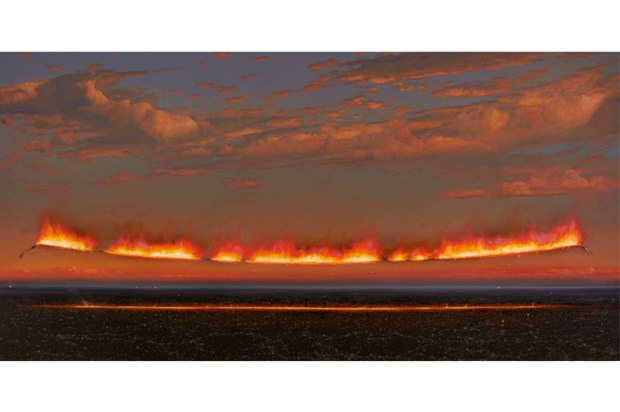
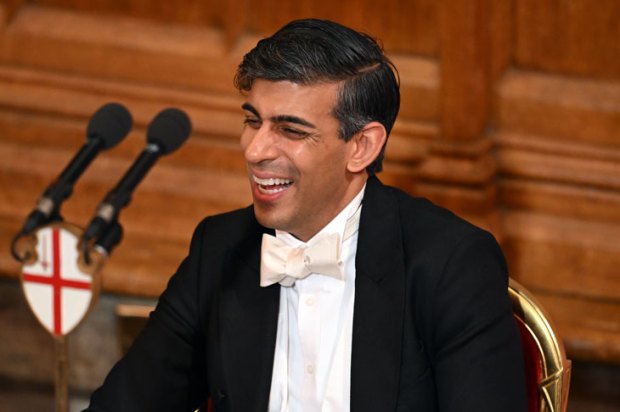
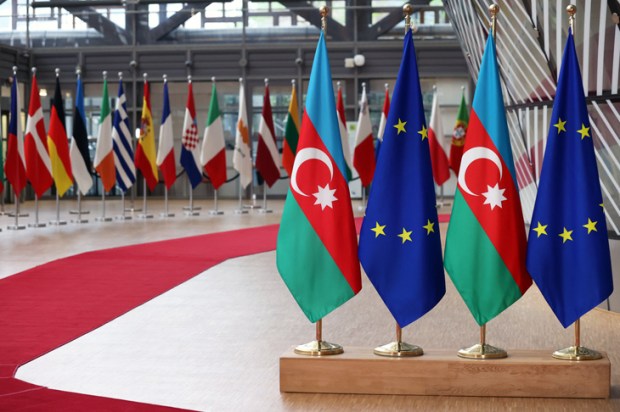
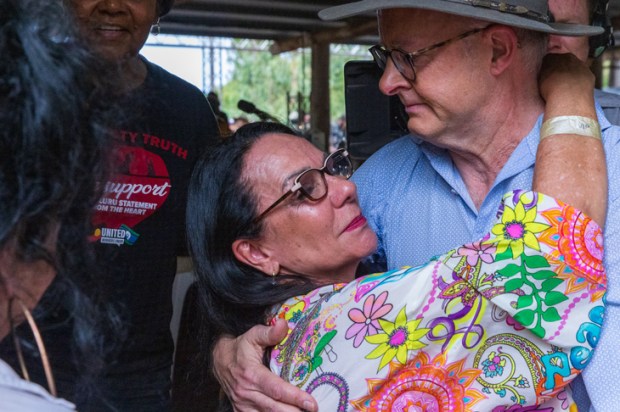
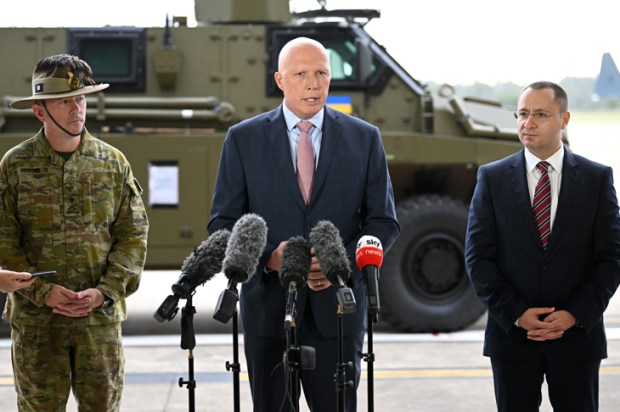
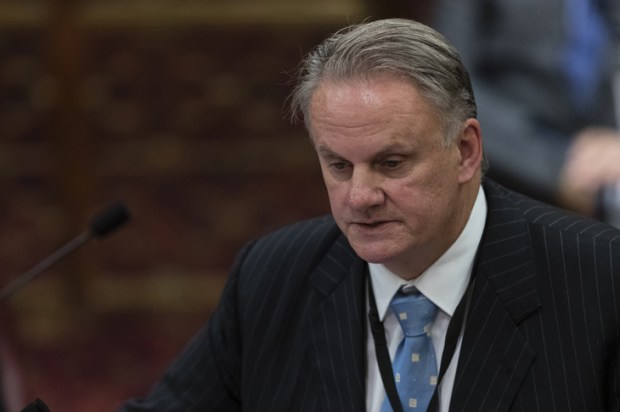






Comments
Don't miss out
Join the conversation with other Spectator Australia readers. Subscribe to leave a comment.
SUBSCRIBEAlready a subscriber? Log in